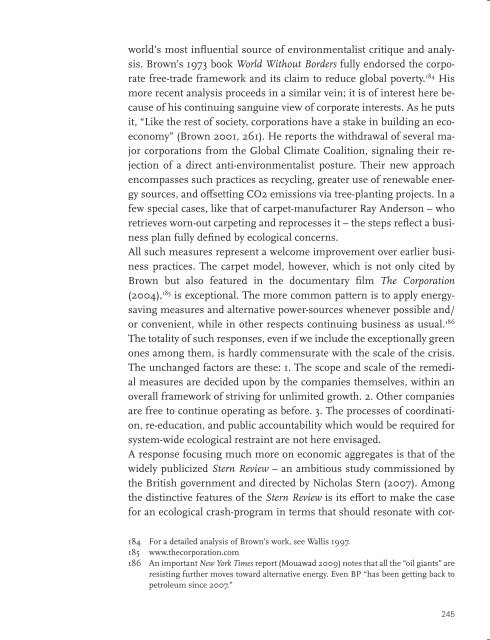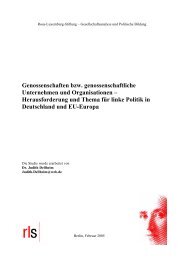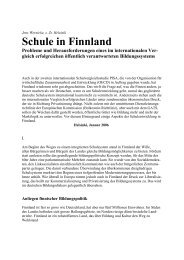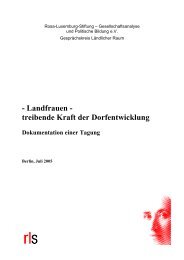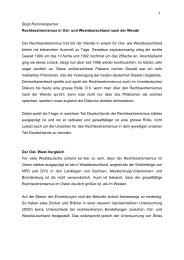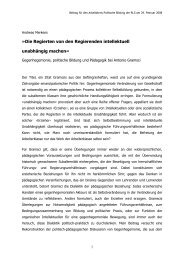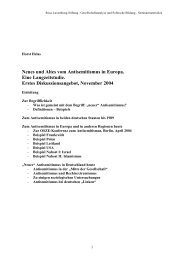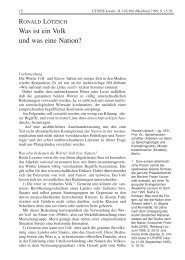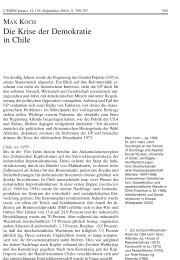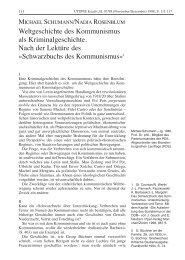Grünen Kapitalismus - Rosa-Luxemburg-Stiftung
Grünen Kapitalismus - Rosa-Luxemburg-Stiftung
Grünen Kapitalismus - Rosa-Luxemburg-Stiftung
Erfolgreiche ePaper selbst erstellen
Machen Sie aus Ihren PDF Publikationen ein blätterbares Flipbook mit unserer einzigartigen Google optimierten e-Paper Software.
world’s most influential source of environmentalist critique and analysis.<br />
Brown’s 1973 book World Without Borders fully endorsed the corporate<br />
free-trade framework and its claim to reduce global poverty. 184 His<br />
more recent analysis proceeds in a similar vein; it is of interest here because<br />
of his continuing sanguine view of corporate interests. As he puts<br />
it, “Like the rest of society, corporations have a stake in building an ecoeconomy”<br />
(Brown 2001, 261). He reports the withdrawal of several major<br />
corporations from the Global Climate Coalition, signaling their rejection<br />
of a direct anti-environmentalist posture. Their new approach<br />
encompasses such practices as recycling, greater use of renewable energy<br />
sources, and offsetting CO2 emissions via tree-planting projects. In a<br />
few special cases, like that of carpet-manufacturer Ray Anderson – who<br />
retrieves worn-out carpeting and reprocesses it – the steps reflect a business<br />
plan fully defined by ecological concerns.<br />
All such measures represent a welcome improvement over earlier business<br />
practices. The carpet model, however, which is not only cited by<br />
Brown but also featured in the documentary film The Corporation<br />
(2004), 185 is exceptional. The more common pattern is to apply energysaving<br />
measures and alternative power-sources whenever possible and/<br />
or convenient, while in other respects continuing business as usual. 186<br />
The totality of such responses, even if we include the exceptionally green<br />
ones among them, is hardly commensurate with the scale of the crisis.<br />
The unchanged factors are these: 1. The scope and scale of the remedial<br />
measures are decided upon by the companies themselves, within an<br />
overall framework of striving for unlimited growth. 2. Other companies<br />
are free to continue operating as before. 3. The processes of coordination,<br />
re-education, and public accountability which would be required for<br />
system-wide ecological restraint are not here envisaged.<br />
A response focusing much more on economic aggregates is that of the<br />
widely publicized Stern Review – an ambitious study commissioned by<br />
the British government and directed by Nicholas Stern (2007). Among<br />
the distinctive features of the Stern Review is its effort to make the case<br />
for an ecological crash-program in terms that should resonate with cor-<br />
184 For a detailed analysis of Brown’s work, see Wallis 1997.<br />
185 www.thecorporation.com<br />
186 An important New York Times report (Mouawad 2009) notes that all the “oil giants” are<br />
resisting further moves toward alternative energy. Even BP “has been getting back to<br />
petroleum since 2007.”<br />
245


